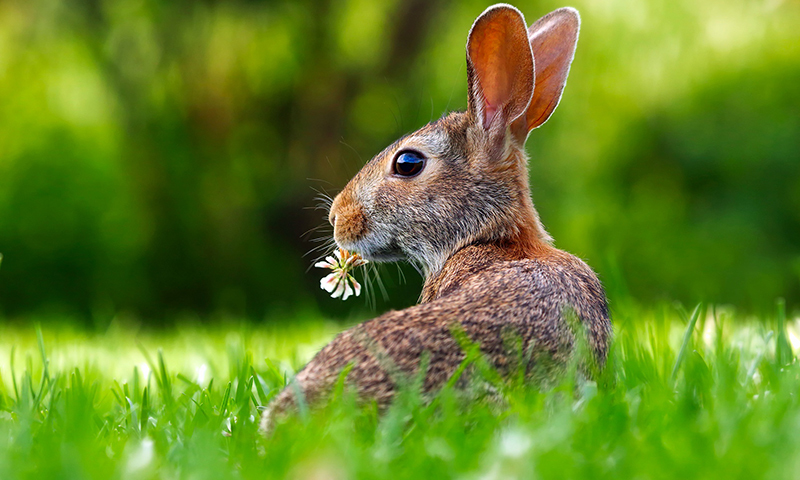
Rabbits prefer to eat plants rich in DNA, scientists have discovered.
The opposite is true for snails and insects. They like their veg to have smaller genomes.
Plant species with large amounts of DNA offer rabbits a concentrated source of nourishing proteins and nucleic acids, scientists believe.
In contrast, invertebrates have adapted themselves to live on plants that contain less DNA but are more available.
The genome is the complete collection of all the DNA in a living cell.
Plant genomes vary greatly in size, with the largest at least 2,400 times bigger than the smallest.
The wide variation has an impact on where plants live and the way different species are affected by herbivores, say scientists.
For the study, published in the journal Proceedings Of The Royal Society B, researchers analysed wild plots at Silwood Park, Berkshire, grazed by rabbits and invertebrates.
The plots contained seven species of grass and five kinds of wild plant such as plantain, creeping thistle and sorrel.
Dr Ilia Leitch, a member of the team from the Royal Botanic Gardens, Kew, said: “We argue that genome size needs to be considered in ecological models that are describing ecological processes.
“The functionality of these ecological models is essential if we are to establish good policy to mitigate against the negative effects of climate change, changing land use, eutrophication (nutrient over-enrichment) of our environment and to conserve our endangered species.”

Enjoy the convenience of having The Sunday Post delivered as a digital ePaper straight to your smartphone, tablet or computer.
Subscribe for only £5.49 a month and enjoy all the benefits of the printed paper as a digital replica.
Subscribe